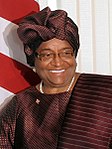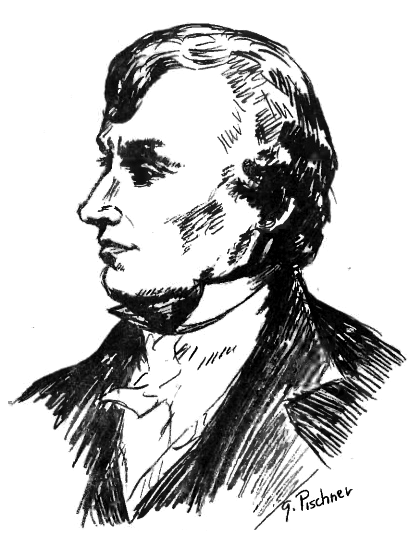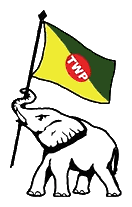
Liberia is a country in West Africa which was founded, established, colonized, and controlled by citizens of the United States and ex-Caribbean slaves as a colony for former African American slaves and their free black descendants. It is one of only two sovereign countries in the world that were started by citizens and ex-Caribbean slaves of a political power as a colony for former slaves of the same political power, the other being Sierra Leone, established by Great Britain. Settlement of former slaves was organised by the American Colonization Society (ACS). The mortality rate of these settlers was the highest in accurately recorded human history. Of the 4,571 emigrants who arrived in Liberia from 1820 to 1843, only 1,819 survived until 1843.

Politics of Liberia takes place in a framework of a presidential representative democratic republic modeled on the government of the United States, whereby the President is the head of state and head of government; unlike the United States, however, Liberia is a unitary state as opposed to a federation and has a pluriform multi-party system rather than the two-party system that characterizes US politics. Executive power is exercised by the government. Legislative power is vested in both the government and the two chambers of the legislature.
Prince Yormie Johnson is a Liberian politician and the current Senior Senator from Nimba County. A former rebel leader, Johnson played a prominent role in the First Liberian Civil War, in particular capturing, torturing, mutilating and executing President Samuel Doe, who had himself overthrown and murdered the previous president William R. Tolbert Jr.
The National Patriotic Party (NPP) is a political party in Liberia. It was formed in 1997 by members of the National Patriotic Front of Liberia following the end of the First Liberian Civil War.

The 2005 Liberian general election was held on 11 October 2005, with a runoff election for the presidency held on 8 November of that year. The presidency, as well as all seats in the House of Representatives and Senate were up for election. The election marked the end of the political transition following Liberia's second civil war and had been stipulated in the Accra Comprehensive Peace Agreement of 2003. Ellen Johnson Sirleaf, former World Bank employee and Liberian finance minister, won the presidential contest and became the first democratically elected female African head of state in January 2006.
The Liberian People's Party (LPP) is a political party in Liberia.

The Unity Party (UP) is a political party in Liberia that was started in 1984 by Edward B. Kesselly, also its first standard bearer. Officially founded at Buchanan in Grand Bassa County, the party was established on 27 July 1985. The Unity Party participated in the first elections after the 1980 coup, running against President Samuel Doe in October 1985. The party has remained active in Liberian politics since and was, until 2017, the ruling party.
The United People's Party (UPP) is a political party in Liberia. It formed in the 1980s as a successor to the Progressive Alliance of Liberia (PAL) and the Progressive People's Party (PPP), but was initially banned under President Samuel Doe because of its "socialist leanings".

Ruth Sando Fahnbulleh Perry was a Liberian politician. She served as the interim Chairman of the Council of State of Liberia from 3 September 1996 until 2 August 1997, following the First Liberian Civil War. After eleven international peace attempts between 1990 and 1995 to end the civil war in Liberia, the attempts appeared to succeed. The interim Council of State consisted of a civilian chairman, as well as members of warring factions: Charles Taylor, United Liberation Movement of Liberia for Democracy-K leader Alhaji Kromah, Liberia Peace Council leader George Boley, and two other civilians.
The National Patriotic Front of Liberia (NPFL) was a rebel group that initiated and participated in the First Liberian Civil War from 1989 to 1996.

General elections were held in Liberia on 15 October 1985. These were the first elections since the 12 April 1980 military coup that brought Samuel Doe to power. During 1984, a new draft Constitutional referendum was approved, which allowed a 58 member civilian and military combined Interim National Assembly, headed by President Samuel Doe. The ban on political parties were lifted and four parties, namely, the President's National Democratic Party of Liberia, Liberian Action Party, Unity Party and Liberia Unification Party were in fray.
Togba-Nah Tipoteh is an economist, educator and politician, having been a presidential candidate in three elections. For more than three decades, he has been actively involved with democratic activities in promotion of human rights, liberties, constitutional rule and growth with development in Liberia and throughout Africa. He is President of the Movement for Justice in Africa (MOJA); was founding Chairman of the Collaborating Political Parties (CPP), an alliance of Liberian political parties; was founder and Director-General of Susukuu Incorporated, Liberia's oldest non-governmental development organization, which was credited by the West Africa Peacekeeping Force (ECOMOG) as helping to disarm over 10,000 combatants and child soldiers in Liberia during the 1997 disarmament program through a school for gun program; and was former Chairman of the Interest Groups of Liberia, a consortium of 32 national organizations with a collective membership of well over one million persons. He has worked in international development in the United States, the Netherlands, Mozambique, Ghana, South Africa and other countries, as well as for the United Nations system: Food and Agriculture Organization (FAO), United Nations Conference on Trade and Development (UNCTAD), International Monetary Fund (IMF), African Economic Community (ECA) and the International Bank for Reconstruction and Development (IBRD), among others.
A new civil war began in 1999 when a rebel group backed by the government of neighboring Guinea, the Liberians United for Reconciliation and Democracy (LURD), emerged in northern Liberia. By the spring of 2001, they were posing a major threat to the Taylor government. Liberia was now engaged in a complex three-way conflict with Sierra Leone and the Guinea Republic. By the beginning of 2002, both of these countries were supporting the latest addition to the lexicon of Liberian guerrilla outfits – Liberians United for Reconciliation and Democracy (LURD), while Taylor was supporting various opposition factions in both countries. By supporting Sierra Leonean rebels, Taylor also drew the enmity of the British and Americans.

The 2011 Liberian general election was held on 11 October 2011, with a presidential runoff election held on 8 November 2011. The presidency, as well as all seats in the House of Representatives and half of the seats in the Senate, were up for election. The election was overseen by the National Elections Commission (NEC).

General elections were held in Liberia on 7 October 1975, alongside a simultaneous referendum on presidential term limits. In the presidential election, incumbent William Tolbert of the True Whig Party was the only candidate, and was re-elected unopposed. In the legislative elections True Whig Party candidates won all 71 seats in the House of Representatives and all 18 seats in the Senate unopposed. Voter turnout was around 80%.
Jackson Fiah Doe was a Liberian politician in the late twentieth century.
















